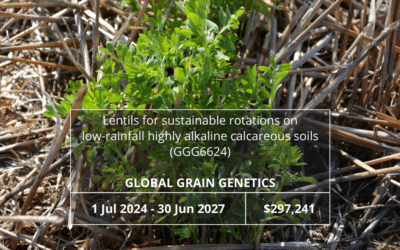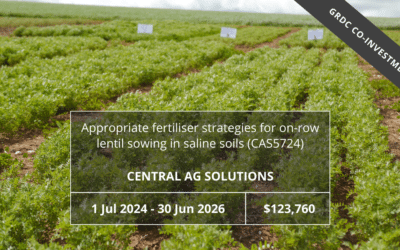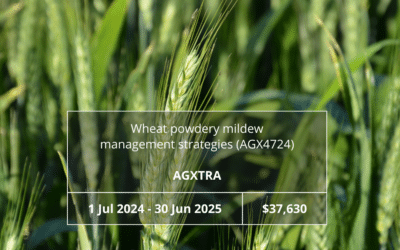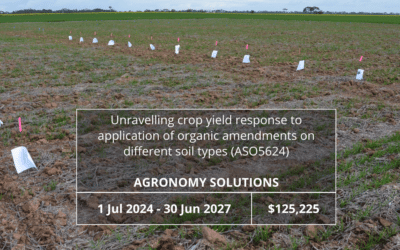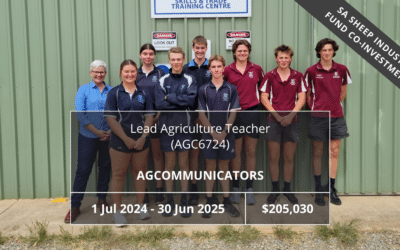This project will improve the sustainability of SA’s diverse and expansive low rainfall cropping areas by expanding lentil production, as a legume break crop for cereals, on highly alkaline calcareous soils in these regions. It will build on the recent successful research, extension and expansion of lentil through the low rainfall Mallee type areas across South Australia, by targeting constraints to profitable production with a focus on the Upper Eyre Peninsula (UEP).
Articles Posted by Bridget Penna
Appropriate fertiliser strategies for on-row lentil sowing in saline soils (CAS5724)
Jul 11, 2024 | Current Projects
This project aims to determine the residual benefit of on-row and off-row sowing and appropriate fertiliser strategies for sensitive lentil crops in phosphorus deficient and moderately saline calcareous soil types of Yorke Peninsula. Research will investigate management techniques of utilising residual phosphorous in a cereal phase along with phosphorous placement at seeding to optimise lentil grain yields and economic returns. This project is a co-investment, with GRDC providing 50% of the total funding.
Wheat powdery mildew management strategies (AGX4724)
Jul 11, 2024 | Current Projects
This project aims to demonstrate to growers and agronomists the effectiveness of existing and emerging wheat powdery mildew (WPM) control options across varieties with diverse susceptibility ratings. It will also raise awareness of the importance of cultural considerations with regards to WPM management and an understanding of pathogen resistance to commonly used fungicides. This project provides an opportunity to extend existing knowledge generated through current SAGIT-funded WPM projects.
Unravelling crop yield response to application of organic amendments on different soil types (ASO5624)
Jul 11, 2024 | Current Projects
This project aims to assess the impact of organic amendments on soil condition and crop response on three contrasting soil types. Through this process, the aim is to provide growers with recommendations on ‘target soils’ where organic amendment applications can provide maximum benefit. Researchers will endeavour to define suitable frequency and application rates of organic amendments in combination with inorganic fertiliser.
Lead Agriculture Teacher (AGC6724)
Jul 11, 2024 | Current Projects
The Lead Ag Teacher role supports schools to more effectively teach and implement agriculture throughout their curriculum. The program, now in its third year, is delivered by AgC consultant Sue Pratt, an experienced agriculture teacher and past President of the Agricultural Teachers Association of SA (ATASA).
Latest Media
- 2024 Student Compendium
- Strategies for mitigating frost damage in the Upper North region (UNF1724)
- An improved and rapid test to inform sodic soil management (UAD4624)
- Increasing pulse yields: focus paddocks to identify and manage soilborne constraints (UAD2624)
- Multi-scale monitoring of pests and beneficial insects in canola cropping (UAD1424)

